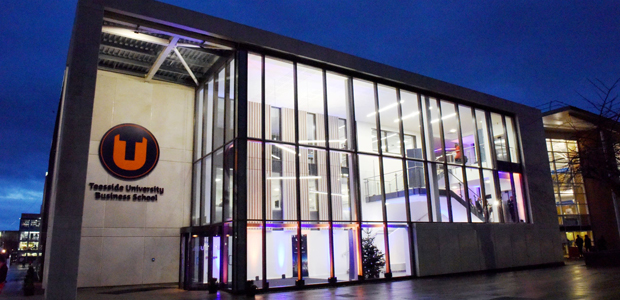
Ramping up critical thinking and managerial decision-making skills
“The rapidly changing world brought about by COVID-19 means leaders face many challenges, opportunities and dilemmas - never has there been a greater need to develop critical thinking, personal agility and managerial decision-making skills to help organisations survive and thrive."
This is the message from Noel Dennis, Course Leader of Teesside University Business School’s part time Master of Business Administration (MBA) and MBA Senior Leader Master’s Degree Apprenticeship (SLMDA), as the University prepares to welcome the next intake of students on both courses in September.
Dennis, a Principal Lecturer who next year marks the 20th anniversary of taking up his first academic position at Teesside University, first explained how the current cohort of SLMDA students - and those beginning in the Autumn - have the opportunity to focus their learnings on their organisations’ responses to COVID-19.
“Each year we have 25-30 part time learners per cohort, with three intakes per annum, on the SLMDA,” Dennis said.
“In the present group these range from business executives to educationalists, engineers and NHS senior clinicians and nurses developing their leadership and management skills. Current and aspiring leaders combine their work with studying for a business qualification. The value of the SLMDA is that what we cover reflects what is happening in the world at the time of delivery.”
The SLMDA, which is accredited by the Chartered Management Institute, is paid for by the government and employer rather than learners and provides a platform for senior managers to drive innovative entrepreneurial leadership back into their organisations.
“In the environment we are in now, and the economic climate going forward, leaders are forced to improvise,” Dennis said.
“Current and future responses to COVID-19 require the ability to adapt and create flexible strategies, speed of response and pace of change, and re-thinking of organisational culture. Entrepreneurial leadership, with a specific focus towards strategy and culture, is at the very heart of the programme.”
Dennis added that whilst the SLMDA was the ideal development opportunity to support leaders navigate through COVID-19, longer term planning around issues such as sustainability are also explored.
“The programme itself takes inspiration from the United Nations’ Sustainable Development Goals and we look at aspects of these to encourage innovation in learners’ organisations,” he said.
“Climate change and plastics activism were already huge prior to COVID-19, and they will come to the fore again after it.”
The SLMDA will continue to be structured around up to eight days per year of face-to-face group learning alongside online delivery, as part of the two-year programme.
Separately, the one year full time MBA and two year part time MBA (delivered through a non-apprenticeship route) is also meeting the growing demand for 'reflective, entrepreneurial, innovative and responsible business leaders'.
“The environment in which businesses operate today is extremely dynamic, posing a myriad of challenges and uncertainty for leaders and their organisations,” Dennis said.
“The overall aim of the MBA is to give leaders within organisations the necessary skills and knowledge to lead their organisations in a complex global environment. We focus on entrepreneurial thinking and learning, development of individual learners’ leadership skills and professional practice, and the important role of business in society.
"One of the distinctive features of the MBA is that we encourage learners to be international in their outlook and understand the challenges and opportunities the global business environment presents businesses, which of course is critical not just for responding to COVID-19 but Brexit too.”
For an informal discussion about opportunities to study the MBA or MBA Senior Leader Master’s Degree Apprenticeship, beginning in September 2020, please contact Noel Dennis at n.dennis@tees.ac.uk.

